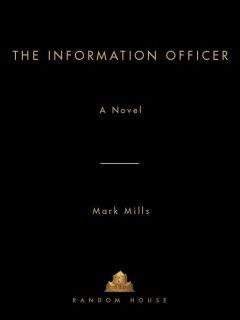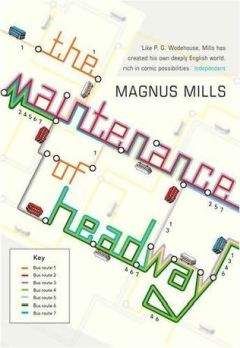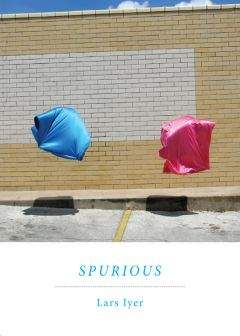Mark Mills - Amagansett
The dead man in the bedroom was a neighbor of the Chadwicks, Samuel Kuhn, a wealthy widower, withdrawn and private, but prone to raging outbursts against the other occupants of the building. A feud had sprung up recently over the issue of the Chadwicks’ cat, which Kuhn claimed was fouling the common parts. When the poor animal was found hanging from the Chadwicks’ door handle, the police were called. It was clear from the patrolman’s report that he sided with the Chadwicks—a respectable insurance man and his petite, attractive wife—but he was bound to let the matter drop through lack of evidence. This incident had occurred some two weeks prior to the killings, and in the intervening period Samuel Kuhn had, by all accounts, grown more cantankerous and vocal than ever, accusing anyone unfortunate enough to cross him in the hallway of conspiring against him.
Then one evening he cracked. Taking up a long paring knife from the drawer in his kitchen, he wandered upstairs and vented his spleen on the Chadwicks. He gained access to their apartment on the pretext that he wished to apologize to them, but on entering the drawing room he went berserk, slitting Julia Chadwick’s throat before turning his attention on her husband. Badly wounded, Gerald Chadwick fled down the corridor to the bedroom, where he managed to wrest the knife from Kuhn’s grasp, turning it on him and stabbing him several times in the chest, killing him. Bleeding profusely, Chadwick then called the police from the bedside phone.
It was an entirely plausible account of the horror that had unfolded in the apartment. Analysis of fingerprints, blood distribution and blood-types all supported it. The multiple lacerations to Gerald Chadwick’s palms, forearms and face were concomitant with defense wounds sustained in a knife attack, and would lead to unsightly, lifelong scarring. Moreover, the knife was undeniably Samuel Kuhn’s, one of a matching set discovered in his kitchen.
The Homicide Bureau was satisfied. And this was their case. Had Hollis not been responding to a break-in at a pawnbroker’s when the call came in, he might have got there ahead of them and been able to stake a claim—his precinct, his watch. Unlikely, though. The Bureau detectives would never have allowed a highprofile, open-and-shut case like this one to slip through their fingers without a fight. No, they would have muscled him out, a precinct detective, and a third-grade one at that. Either way, his was always going to be a lone voice of dissent struggling to make itself heard, if only because he couldn’t put his finger on exactly what it was that was troubling him.
All he knew was that he had a sense of unease about the case—an itch, a niggle—something he had seen, heard, imagined? He couldn’t rightly say. His persistence drew hoots of derision from Lieutenant Gaskell, who refused to share Hollis’ misgivings with the Homicide Bureau. Gaskell was an incompetent, a man who had made lieutenant before they required you to sit an exam, but he was no fool. He had his record to think of.
The night before the crime scene was due to be cleaned up, Hollis gained access to the apartment, spinning some yarn to the uniform on duty at the door. He wandered the rooms and corridors deep into the night, working every angle he could think of. No idea was too preposterous; and not one of them bore fruit. He was smoking his last cigarette, pacing through the events of that evening one final time, when it hit him. It was almost as if it had teased him enough and out of pity had decided to reveal itself to him. One moment it wasn’t there, and then it was, as it had always been, since that first day. He dropped to his hands and knees in the corridor, peering at the wooden floor.
Gerald Chadwick maintained that he had fled down the corridor in fear of his life, hotly pursued by a knife-wielding maniac. The spots of blood on the floor were indeed Chadwick’s—that much had been established—but if he’d been traveling at anything more than a walking pace, the impact pattern of the drops would have betrayed this fact, with jagged, toothlike projections extending forwards.
The uniform, almost perfectly circular shape of the drops in the corridor suggested that Gerald Chadwick had in fact been strolling towards the bedroom.
In one blow, it was now possible to construct an altogether different scenario for the evening in question: Gerald Chadwick somehow luring Kuhn to the apartment, Gerald Chadwick slitting his wife’s throat in the drawing room, Gerald Chadwick slashing himself with the knife then calmly trailing his terrified guest down the corridor to the bedroom.
Why? It didn’t matter. That would follow. Gerald Chadwick had lied, and to Hollis’ mind that suggested Gerald Chadwick was guilty of murder.
Two hours after his arrival at the Homicide Bureau headquarters on Centre Street, and following further examination of the bloodstains, Harry Beloc, the Chief of Detectives, announced that Hollis might be on to something. By now, word had filtered through to Lieutenant Gaskell, who showed up in Beloc’s office, backing his boy, and keen to point out that he’d done so from the very first. He changed his tune when Hollis suggested they go straight for a confession.
‘Gaskell, shut the hell up,’ Beloc had snapped. ‘This could be your meal ticket. Might even get your name in the Daily News.’ Beloc had made up his mind by the time the laughter subsided. He handled the matter himself, paying Chadwick a visit in his recovery room at Bellevue Hospital. Chadwick crumbled under questioning. Too weak to be moved, he spent that night in the hospital, but two floors down—in the Department of Correction’s prison ward.
The story made the front pages, and Lieutenant Gaskell did indeed get his mention in the Daily News. Hollis didn’t. That was okay, though; it was the way things worked. Besides, those who mattered knew that the breakthrough clue and the subsequent strategy had been his. Three months later, he was promoted to detective second-grade, which meant an extra two hundred dollars a year. Lydia celebrated by promptly spending a sizable portion of this sum on clothes. They dined out on Broadway, the ‘Great White Way’ unnaturally dim and moody because of the wartime blackout restrictions, and they toasted their future with an overpriced bottle of French Champagne.
There was cause for real cheer: Hollis had turned a corner in his career. Gaskell had already pulled him off the petty larcenies—the sneak thieves, pennyweighters and pickpockets—and if he continued to make the Lieutenant look good on the bigger cases he might even get a call from the Homicide Bureau in a year or two. He hadn’t seen or heard from the Chief of Detectives since that day in his office, but he knew Beloc had registered his existence.
But if Hollis felt good, it wasn’t so much for his growing status—Lydia was covering that base—as the fact that he was beginning to believe he might actually have a gift for detective work, a nose.
So young, so earnest, so thoroughly self-absorbed that he hadn’t even noticed his enemies already ranging themselves against him in the shadows of his victory, his vainglory.
Hollis waited until the mourners dissipated, heading for their cars, before making his move.
‘Mr Penrose?’ he said, approaching from the rear.
Getting the name had been easy, requiring no more than a casual exchange with the chauffeur; figuring where he’d heard it before had taken a little longer. He’d found it eventually, scrawled in the memo pad amongst the notes taken at his first meeting with the maid, Rosa: Lillian W. moves to East Hampton in January following split from fiancé (Penrose).
‘Yes?’
‘Justin Penrose?’
‘That’s right.’
‘It’s about Lillian Wallace. I have a few questions.’
‘Questions?’ frowned Penrose.
‘You knew Miss Wallace well.’ It was a statement, not a question.
‘We were together for a time if that’s what you mean. Why?’
‘I believe you were engaged, no?’
‘Yes.’
‘When was the last time you saw her?’
‘I don’t know, a month or two ago.’
‘Up here?’
‘Look, what’s this all about?’
‘In East Hampton?’
‘Yes, in East Hampton.’
‘This was the time you went swimming with her off the ocean beach.’
Penrose visibly stiffened. ‘You know,’ he said firmly, ‘I really don’t think I have time for this right now.’
‘Of course. We can do it later if you want.’
Penrose glanced around him. Cars were beginning to pull away from the verge, making for the reception at the Wallaces’ house. He turned back to Hollis, resigned to having the conversation.
‘How did she appear to you?’
‘Well, a lot better than just now.’ Embarrassed by his flippancy, Penrose added solemnly, ‘Look, she seemed well. Very well indeed.’
‘Were you worried about her? I mean, her leaving the city, coming up here over the winter?’
‘Yes, I was worried about her. We all were. But as I say she seemed very well, much better.’
‘Do you mind me asking why you broke off your engagement?’
Penrose weighed the question. ‘As a matter of fact, I do. I don’t see that it’s any of your business. In fact,’ he added, ‘what is your business?’
‘I’m just trying to get a picture of her state of mind. It’s routine in cases of unattended deaths.’
That phrase again.
‘What are you saying?’ asked Penrose. ‘That you think she took her own life?’
‘Oh no, Mr Penrose, I know she didn’t.’
This was the moment he had been heading for. A guilty man would recognize it for what it was: Hollis laying down his hand. Penrose’s expression was impossible to read. A poker player, no doubt about it. And a good one.
‘Then why are we having this talk?’ said Penrose.
‘Like I say, it’s just routine. Thank you for your time.’
Hollis stood his ground, waiting to see if Penrose glanced back at him before climbing into the limousine.
He didn’t.
But Hollis did see Bob Hartwell observing him from down the far end of Cooper Lane. He turned away when Hollis caught his eye.
Thirteen
Conrad glanced at his watch. Unless they were running late, they’d be putting her in the ground about now. He had no difficulty picturing the scene, because he’d passed by the cemetery the previous day.
It was a large plot, shaded, pleasingly so, the earth heaped up beside the fresh hole. She would have approved of the headstone, nothing too ostentatious, no ornamental frills, just her name, date of birth and date of death carved into some kind of pale stone, softer than marble. He had frowned as he did the calculation. Twenty-six years old. She had lied to him about her age, adding two years. Why?
He had struggled with the question then, and he did so again now as he lay curled on his bed, fully clothed.
With time, no doubt, she would have offered up an explanation.
With time.
Did he really think their relationship would have continued on its course indefinitely? Had he ever allowed himself to believe that it could? It would have been easier to lie to himself and say no; but there had been signs from the beginning, almost from their very first exchange. They had discussed it later, or rather she had discussed it, pushing him to admit that he had sensed it too. And he had flatly denied any such immediate feelings.
That was their game. Their dance. On other occasions, he took the lead and she did her best to step on his toes. The truth was, they’d both known they would see each other again after that first chance encounter. And they had, a little less than a week later.
It was dusk, and Conrad was by the barn, tarring a fyke net in the old cauldron once used for trying-out whale oil, racing to beat the creeping darkness.
She materialized ghost-like from the gloom, clutching a bottle of whiskey.
‘Hi.’
‘Hi.’
‘How’s the foot?’
‘Better…Not true. It keeps opening up.’
‘I told you not to walk on it.’
‘I’m not good at taking orders.’ She glanced at the cauldron. ‘What’s cooking?’
‘Tar.’
‘This is for you.’
The whiskey was his brand—Imperial—noted and logged on her last visit.
‘It’s by way of a thank you for coming to my aid…albeit a little slowly at first.’
‘You want some?’ he asked.
‘Is it any good?’
‘No.’
‘I didn’t think so. It was the cheapest one in the liquor store.’
She tried it nonetheless, mixed with Coke. As soon as he had cleaned up and changed his clothes he joined her on the deck and poured himself a glass.
‘It’s my birthday,’ she said.
‘Happy birthday.’
‘Thank you.’
‘Shouldn’t you be out celebrating?’
‘That’s exactly what my father said when I spoke to him earlier.’
‘Sounds like a wise man.’
Lillian smiled.
‘I’ll do something over the weekend,’ she said. ‘My brother and sister are coming up. They’re throwing a surprise party for me.’
‘Some surprise.’
‘My cousin let it slip. Poor Alice, she was never the brightest flame.’
They sat in silence, staring at the stars.
‘I don’t have a present,’ said Conrad, ‘but I can offer you supper.’
‘Well, that depends what’s on the menu.’
‘Lobster and caviar?’
‘You’re joking.’
‘Where’d you think they came from?’
‘I don’t know. Lobsters, I suppose, but caviar…’
‘It’s been a good year for sturgeon.’
‘You catch them here?’
He pointed at the ocean, adjusting a little to the southwest. ‘About there. Got six hundred fathoms of net fishing just off the bar. We’ll haul the gear tomorrow, set it again, keep it up till the spring run drops off at the end of May.’
‘I had no idea.’
‘Come with me.’
He fired up the generator and led her over to the old whaleboat house beside the barn. It was here that they prepared the sturgeon roe. He talked her through the operation, demonstrating how they separated then salted the eggs. When she asked if they did good business, he shrugged. He didn’t tell her that they’d made enough in the last month alone to see them good till the end of the year. Before leaving, he took a couple of tins of their own caviar off the shelf, gifts from a grateful buyer at the Fulton Fish Market eager to do more business with them. Then he plucked two lobsters from a wooden tub and asked her to choose between them.
‘I reckon we’re good for both,’ she said. ‘Don’t you?’
She set the table while he cooked. She remarked on the beauty of the sideboard, and he told her that it was made from the wood of one of the tall elms on Amagansett Main Street felled by the ‘38 hurricane. He explained that the house too was a victim of that apocalyptic storm. It had started life in East Hampton, on the western shore of Georgica Pond, put up as a summer home by a New York publisher at the turn of the century. Shattered by the high winds, it had lain derelict throughout the war before Conrad bought it, transporting it along the beach on skids to the plot of land he’d just purchased on Napeague. A section of the roof, the back bedroom and one corner of the main room were all missing, and all were replaced with lumber and shingles recovered from the old Amagansett Gun Club, sold off by the members when they decided to upgrade their bunking quarters out on Montauk.




